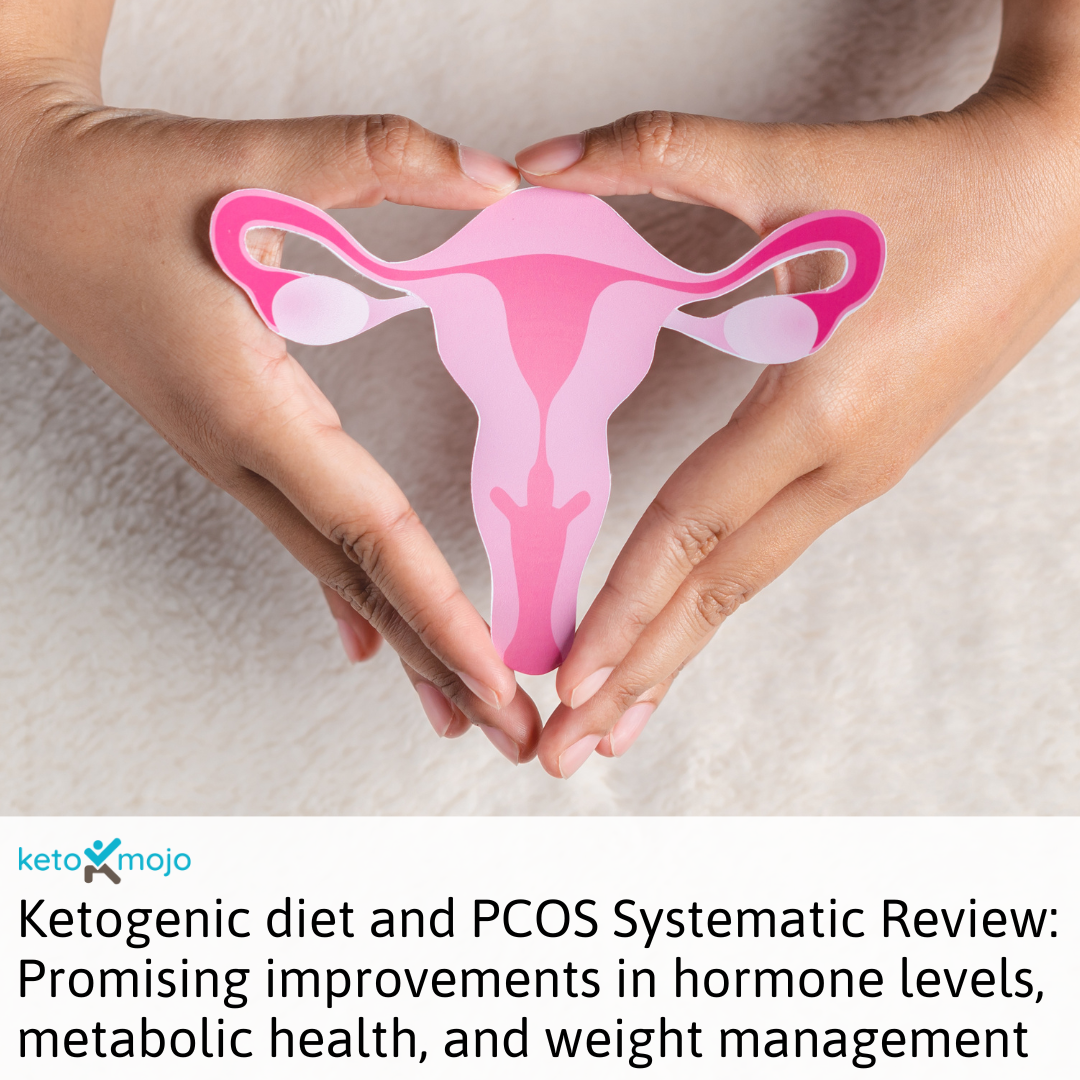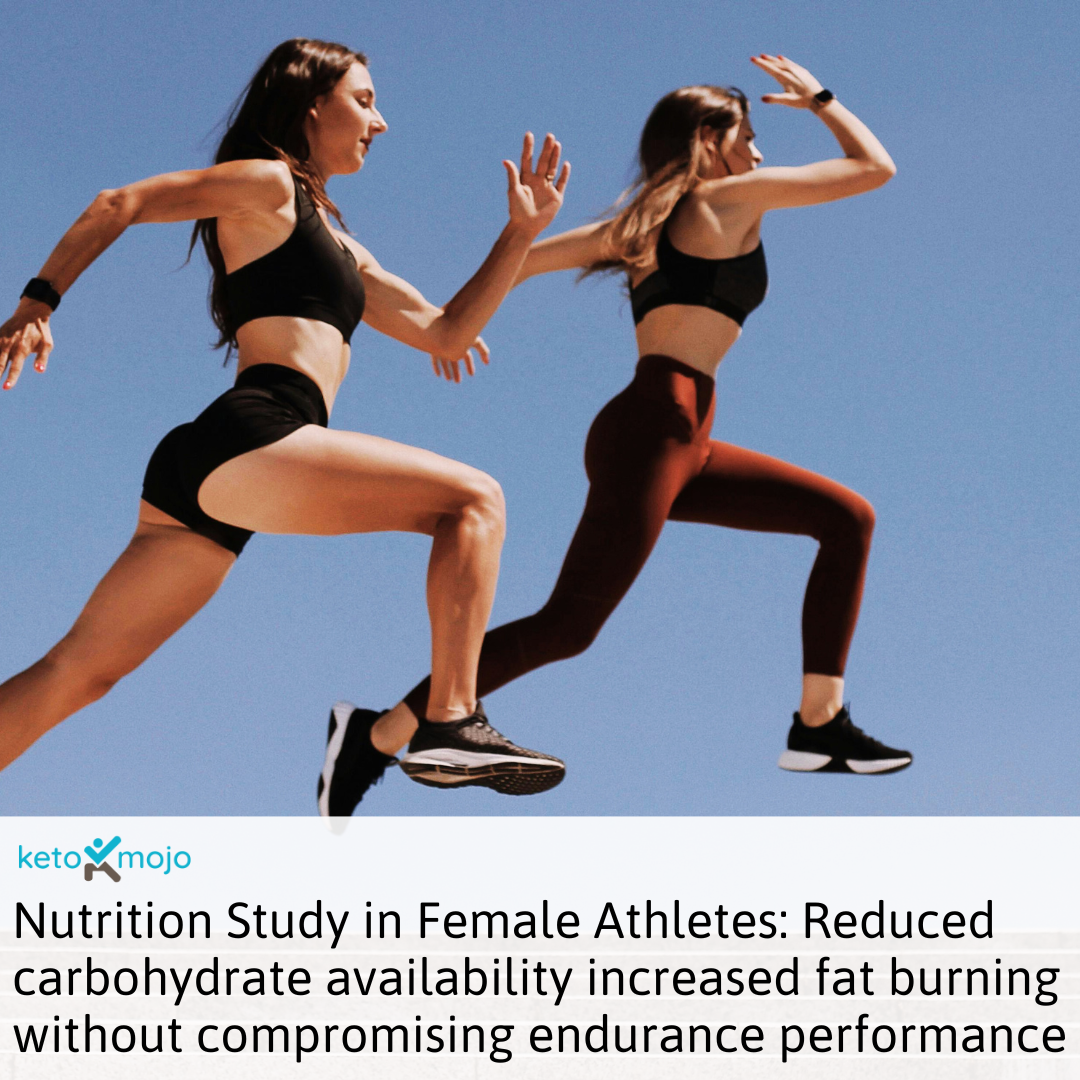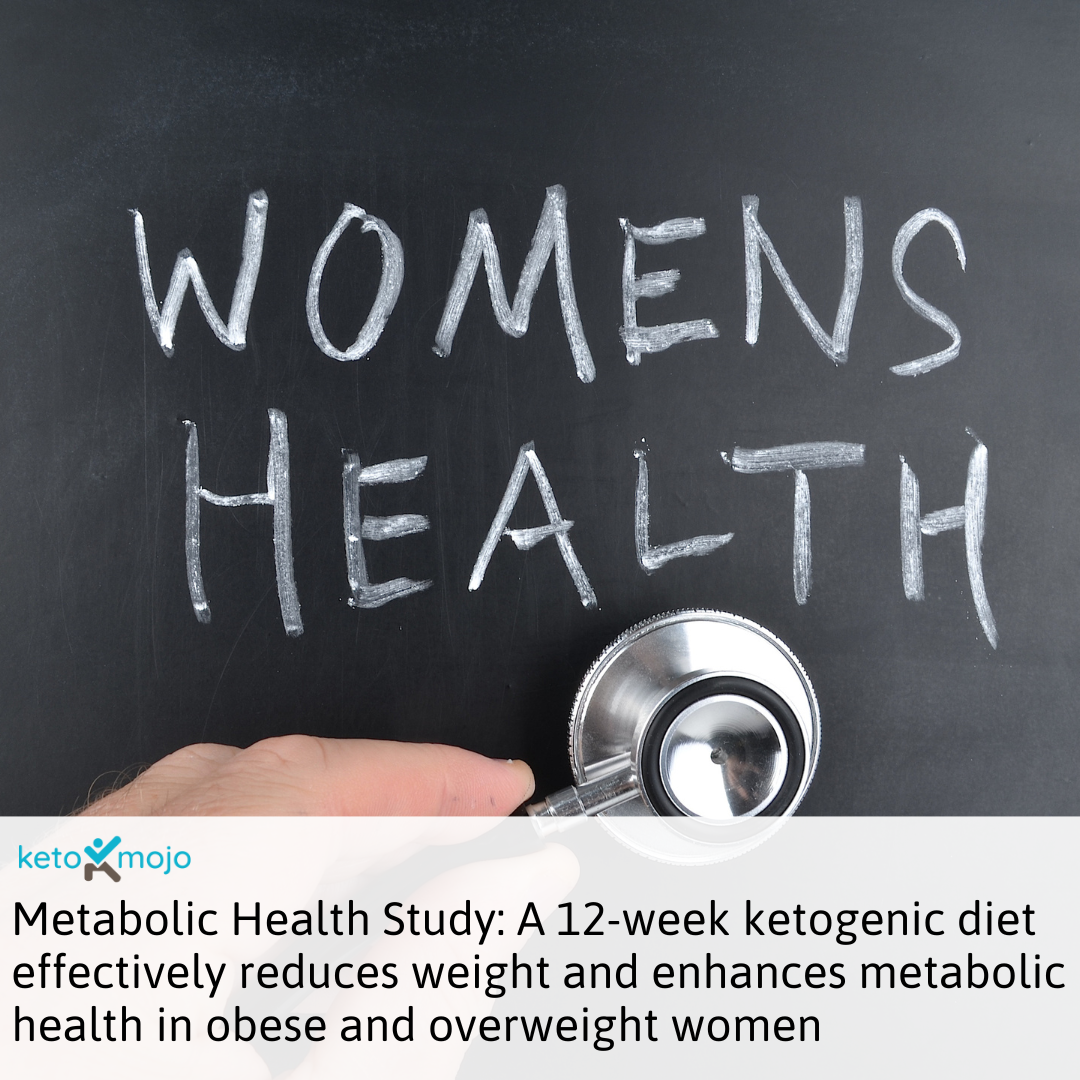Endocrine, General Health
Effects of Ketogenic Diet on Reproductive Hormones in Women With Polycystic Ovary Syndrome

Polycystic Ovary Syndrome (PCOS) is a complex disorder in women characterized by features such as irregular ovulation, high levels of male hormones, and polycystic ovaries. Early diagnosis and treatment are crucial as PCOS increases the risk of several serious complications, including endometrial cancer and cardiovascular issues.
This extensive study, the first systematic review with a meta-analysis, investigated the impacts of a ketogenic diet on women with PCOS. The study aimed to consolidate evidence from clinical trials to assess the effects of the ketogenic diet on specific reproductive hormones and weight change in these women. In conclusion, the study suggested a positive association between the ketogenic diet and improvements in reproductive hormone levels and weight in women with PCOS, such as:
→ Hormone Level Improvement:
The ketogenic diet has been associated with potential improvements in various hormone levels in women with PCOS. Findings are indicating a potential enhancement in LH/FSH ratio, serum free testosterone, and serum SHBG levels in women with PCOS.
→ Endocrine Normalization:
The ketogenic diet may promote endocrine normalization by enhancing insulin sensitivity and overall metabolic health.
→ Reduction in Hyperandrogenism:
The ketogenic diet appears to lower levels of free testosterone, which is often elevated in women with PCOS, consequently playing a critical role in the development of various PCOS-related complications, including obesity, type 2 diabetes, hypertension, and others.
→ Improved Metabolic and Ovulatory Function:
Increasing the levels of circulating SHBG might improve both metabolic and ovulatory dysfunction in women with PCOS. This increase seems to limit the circulating free androgens by reducing hyperinsulinemia and decreasing stimulation of ovarian androgen production.
→ Weight Loss:
The ketogenic diet has been associated with significant weight loss, possibly due to various mechanisms such as increased satiety from higher protein intake, appetite-suppressant properties of ketone bodies, enhanced metabolic efficiency when consuming fats, and increased thermic effect of dietary proteins.
These findings, despite being based on a limited number of studies and subjects, have vital clinical implications, offering insights for tailoring individualized dietary plans for women with PCOS. Further research is warranted to ascertain the transferability and applicability of these results to the general PCOS population.






